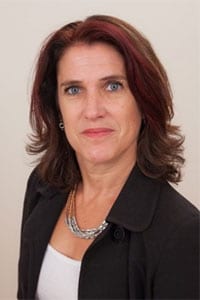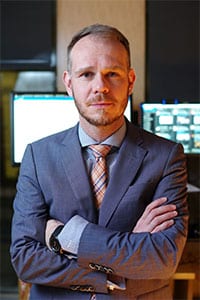The first rule of thumb in strategic communications is to know your audience. And if you don’t, you need to do a little research to learn.
Strangely enough, when scientists try to communicate to the public, they often forget to take the disciplined approach they apply to their own work and instead just wing it. Then they are surprised when they cause confusion or are misunderstood.
At UW–Madison, two programs are bringing together the rigor of academic research and the expertise from hands-on fieldwork, collaborating to make science communications more scientific.
At many universities, research in this area is still in its infancy, but the work of the Department of Life Sciences Communications (LSC) is internationally renowned. Across campus, the Morgridge Institute is a national model for running community outreach programs, from summer camps for kids on campus to the annual state-wide Wisconsin Science Festival involving hundreds of scientists in nearly every county.
Deepening this relationship is now a top priority for the institute. Science Advisory Board Chair John Durant, who directs the MIT Museum, sees tremendous opportunity to improve science communications by melding theory with practice in a way that perhaps no other university has done.
“It’s hard to identify a more urgent issue that we, as participants in society, need to deal with,” says Brad Schwartz, CEO of Morgridge. “We want to know — this is what works, this is what doesn’t, and this is why.”

A good example of this partnership is a National Science Foundation grant to explore whether on-the-ground engagement with different publics can depolarize public debates around emerging technologies like CRISPR. How can insights from social science help us create constructive dialogue between scientists and citizens without public debate getting gridlocked by political or value-based disagreements?
LSC faculty Dominique Brossard and Dietram Scheufele are working to develop a program in which rigorous research on science communication can help identify the most beneficial ways to connect with society.
Such partnerships require rethinking and humility on the part of scientists as well. Whether the topic is cancer or genetic engineering or vaccines, “we need to make sure we don’t assume to know what people value,” says Brossard, chair of LSC and an expert in public opinion dynamics related to controversial science.
Information is crucially important, but it’s not enough. The problem comes in throwing information at audiences without context. “We’re often answering questions that we either assume or wish audiences would’ve asked, rather than the questions that they are actually asking,” says Scheufele, an expert in the fields of political communication, science communication, and science & technology policy.
The same caution applies to understanding to whom people want to listen. “We tend to assume that the science we trust is the science that other people trust,” says Scheufele. “Unfortunately, people are as good at finding the science that confirms their belief as they are in ignoring evidence that doesn’t.”

Actively practicing humility also means scientists must refrain from blaming people for not knowing enough or doing the wrong things, as if they were the problem that needs to be fixed. Instead, we should ask ourselves: How can we change the public’s mindset by answering questions that people really have? How can we address concerns and values?
In a time when society is deeply fractured and anything can quickly become politicized, scientists must also remember to first do no harm. “We are really concerned about science as a polarizing force,” says Brossard.
Often, it’s based on well-meaning missteps that just produce the wrong outcomes. UW research has shown that efforts to assuage fears of the mRNA vaccines used against COVID-19 by saying, “don’t worry, it won’t change your DNA,” backfired because it elevated fears of other technologies such as gene editing.
Scientists also need to remember that the proverbial mic is always on, especially on social media. You can’t disparage Republicans on Twitter and then ask them to listen to you on climate change. Or mock Christians beliefs and ask religious people to listen to you on stem cells or tissue engineering.
And sometimes it comes down to simply paying attention to how we say things rather than what we say. Scientists speak confidently of their theories, but laypeople see that as a weakness, something is “just a theory” that cannot be proven. Vaccine “passports” can sound like government overreach, while vaccine “verification” sounds an active individual choice.
Using Wisconsin as a test bed, the collaboration between researchers and the practitioners is about to get closer. Brossard and Scheufele will be identified as Morgridge investigators. The university offers minors and certificate programs for both undergraduates and graduate students at UW–Madison.
A hub for this work at Morgridge could offer interesting new models of study, such as a visiting scholar program, workshops in addition to full courses, or weekend executive education opportunities. They aim to focus on helping scientists at all levels — from beginning students to seasoned senior investigators — communicate more clearly.
